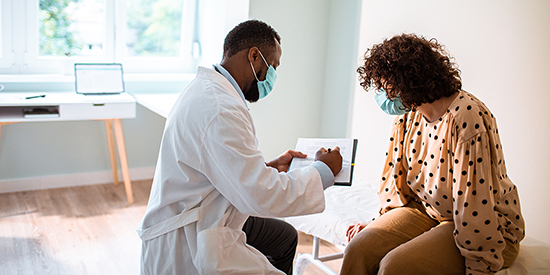Should I schedule routine care during COVID-19?
Share This Article

I’ve been avoiding making medical, dental and vision appointments to let my providers focus on people who need critical care — and to keep my own risk as low as possible. But now that the pandemic has lasted several months, I’m really overdue for some services. Is it OK to contact my doctors and dentist for non-urgent care, or should I wait a bit longer?
You’re right that many appointments have been delayed due to the pandemic, but this is a good time to make sure you are receiving the essential care you need. Delaying preventive care can negatively impact your health and lead to longer-term problems. Here are some tips for seeking the health care you need safely.
Take stock of your health
This has been a really stressful year. How are you doing?
Take an inventory of any issues that you may need to talk about with a professional. Consider, for example:
- Treatment for an existing condition
- Prescriptions you need approval to refill
- Past due routine care such as check-ups, screenings and dental cleanings and exams
- New symptoms or concerns — physical or emotional — that have developed over the last few months
Start with your provider
Give your provider’s office a call so you can work together to prioritize and plan the next steps to protect your health.
Depending on the kind of care you need, consider telehealth services. A recent national poll found that 23% of US adults have utilized telemedicine since the start of the COVID 19 pandemic (source: Kaiser Family Foundation). Telehealth visits are covered by all of UC’s medical plans, including expanded behavioral health options.
If you do need an office visit, here are a few questions you can ask about your provider’s new practices for minimizing risk:
- Are patients being screened upon entry to the clinic?
- Are guidelines for physical distancing and face coverings strictly enforced whenever possible?
- What type of preventive measures are in place (i.e., hand sanitizer stations, wiping down frequently used surfaces)?
Once you’ve talked with your provider, you can contact your health plan with any specific questions about your coverage and costs. Call the member services phone number on the back of your health plan ID card.
Lower your risk
We’re all in this together. Before your visit — and every day — protect yourself and others by wearing a mask, washing your hands and keeping a safe distance from people outside your household. If you are experiencing any new symptoms before your appointment, make sure to let your provider know.
